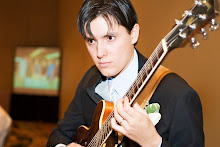From the services I publish in our weekly church bulletin:
How many “services” do we have in each church service?
You may have noticed there are two “services” in our worship: the “Service of the Word” and “Service of the Sacrament.” Are these separate services? The worship of the Christian church has always had two chief parts. The Jewish disciples of Jesus continued practices of the synagogue, which consisted in readings from the Old Testament, teaching, singing Psalms, and prayer. We continue this tradition in the Service of the Word, where we read from both Testaments, hear the Gospel proclaimed, and respond with prayer and singing psalms, hymns and spiritual songs (Col. 3:16). All this proclaims Christ as the substance of our faith, as summarized in the creeds. As Christians, we have from our Lord himself one other ritual: the Lord’s Supper, which has evolved into it’s own ceremony for two reasons. First, the early church welcomed unbelievers to attend the Service of the Word, but since they were not permitted to receive the Lord’s Supper, they were dismissed before it was celebrated. So it became sort of the “service within the service.” The other factor in this separate service was its significance: As Christ is the final sacrifice for sin, putting to an end to the Jewish temple sacrifices, the celebration of Christ’s work on the cross is the rite through which we receive God’s forgiveness. Thus Christian worship begins with hearing God’s word, responding with praise and prayer, and ends with receiving forgiveness, life, and salvation, the fruit of the cross, in the Sacrament. The church developed bookends so that the four-fold pattern of Christian worship, found in churches of all denominations and in all centuries, is gathering, Service of the Word, Service of the Sacrament, and concluding rites.
From the Augsburg Confession: Article 24: Our churches are falsely accused of abolishing the Mass. The Mass is held among us and celebrated with the highest reverence. Nearly all the usual ceremonies are also preserved, except that the parts sung in Latin are interspersed with German hymns. These have been added to teach the people. For ceremonies are needed for this reason alone: that the uneducated be taught what they need to know about Christ.




No comments:
Post a Comment